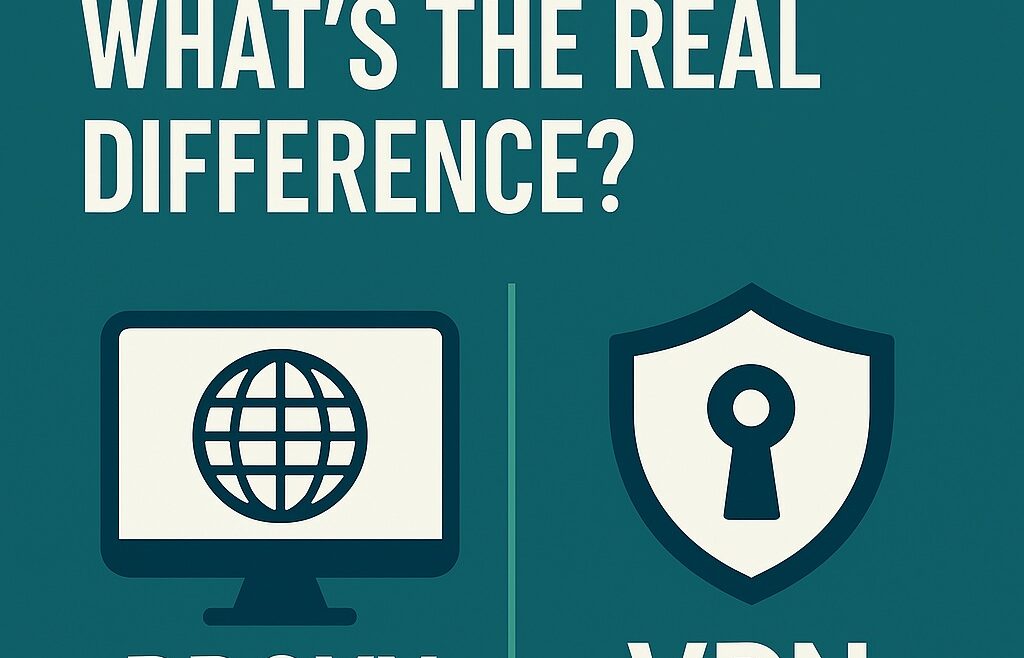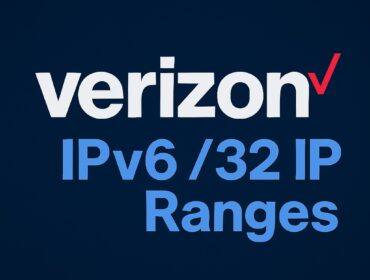When it comes to privacy, anonymity, and online access, two tools dominate the conversation: proxies and VPNs. They’re often lumped together, but they serve different purposes and offer different benefits.
So what’s the real difference between a proxy and a VPN? And which one is right for your specific use case?
In this post, we’ll break down:
- How proxies and VPNs work
- Key differences in function, security, and speed
- Real-world use cases
- When to choose one over the other
🌐 What Is a Proxy?
A proxy server acts as an intermediary between your device and the internet. When you send a request (like visiting a website), the proxy forwards it using a different IP address, masking your real location and identity.
Common Types:
- Residential Proxies: Route traffic through real home internet connections
- Mobile Proxies: Use carrier IPs from 4G/5G networks
- ISP Proxies: Static, high-trust IPs from ISPs
- Datacenter Proxies: Fast and affordable, but easier to detect
🔧 Best For:
- Web scraping
- SEO & ad verification
- Managing social media accounts
- Accessing geo-restricted content
- Running automation tools
🛡️ What Is a VPN?
A Virtual Private Network (VPN) encrypts your entire internet connection and tunnels it through a remote server. It hides your IP address and shields all your online activity—including DNS queries and app traffic.
VPNs provide end-to-end encryption, making them ideal for privacy and secure browsing on public Wi-Fi.
🔧 Best For:
- General online privacy
- Safe use on unsecured Wi-Fi networks
- Streaming blocked content
- Bypassing government censorship
- Protecting sensitive data
⚙️ Key Differences: Proxies vs VPNs
| Feature | Proxy | VPN |
|---|---|---|
| IP Masking | Yes | Yes |
| Encryption | No (unless configured) | Yes (full tunnel) |
| Speed | Typically faster | Slightly slower due to encryption |
| Use Case | Targeted tasks (web/data/apps) | Full-device privacy |
| App Coverage | Per-app/browser | Entire operating system |
| Anonymity Level | Medium–High | Very High |
🎯 When to Use a Proxy
Choose a proxy when:
- You need to rotate IPs for scraping or account creation
- You’re automating logins or browsers with different identities
- You want to control geolocation on a per-request basis
- Speed is more important than encryption
Proxies shine in scenarios where volume, scale, and precision matter.
🔒 When to Use a VPN
Choose a VPN when:
- You’re on public Wi-Fi and want encrypted protection
- You need full privacy for all device traffic
- You want a simple, one-click connection
- You’re streaming, torrenting, or accessing censored content
VPNs are best when security and simplicity are the priority.
🧩 Can You Use Both?
Yes—and many professionals do.
For example:
- Use a VPN on your primary machine to protect sensitive logins
- Use proxies inside virtual machines, emulators, or scraping tools
Proxy Lust’s solutions are compatible with both hybrid and layered setups.
🚀 Why Proxy Lust for Proxy Needs?
At Proxy Lust, Inc., we specialize in:
- ⚡ High-speed residential, mobile, and ISP proxies
- 🌍 Geo-targeting across the US, UK, Canada & more
- 🔁 Rotating and static options for all major use cases
- 🛠️ Full support for scrapers, emulators, browser automation, and developers
👉 Explore Our Proxy Solutions →
While proxies and VPNs both help conceal your IP and location, they’re built for different tasks.
Use VPNs when security is your priority. Use proxies when scale, control, and stealth are more important.
With Proxy Lust’s enterprise-grade proxy infrastructure, you’ll always have the tools to move fast—and stay anonymous.




